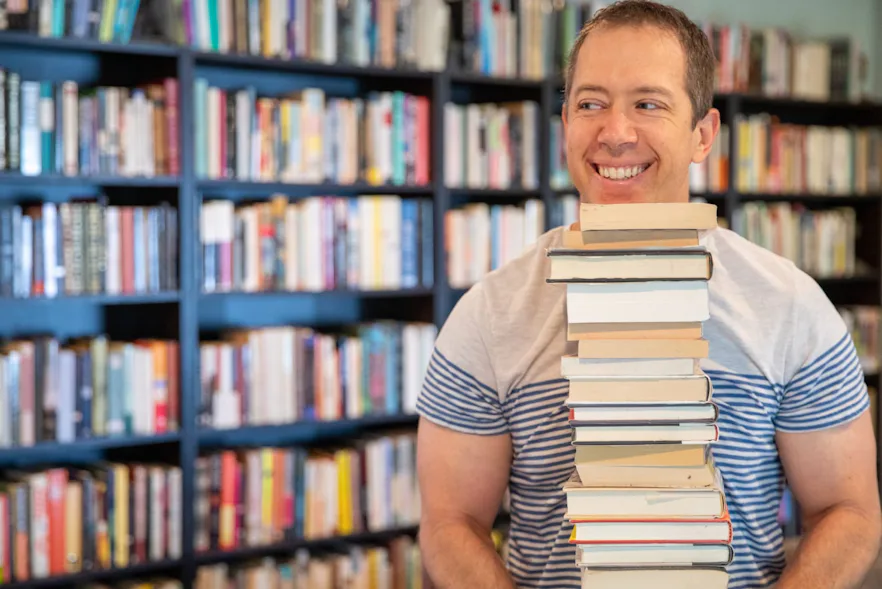So far, John Fox has received 1,700 rejection letters.
He’s a fiction writer.
Rejection is part of the deal.
But John doesn’t mind. He has tenacity – what he (and his friends) call bull-dogged stubbornness. (John’s friends even call him “The Bulldog” and gave him a ceramic bulldog that sits on his desk.)

But John didn’t always know how far such a penchant for endurance would take him as a writer.
All he knew is that he wouldn’t take no for an answer.
Like that time back in high school when he tried out for the junior varsity basketball team as a freshman; he didn’t make the team, but he tried out again his sophomore year.
But he didn’t make it then either.
His basketball future was not looking good. And as John explains, “This was in a 100 person high school; ninety percent of the guys who tried out got on the team. I guess I just really sucked.”
Most people would understandably give up at that point. Maybe basketball is just not your thing, and all. No shame in that.
But John wasn’t ready to declare basketball ‘not his thing’ yet.
Instead, he bought weighted strength shoes and ran with them constantly, up and down the stairs, jumping, and doing various exercises, working hard to get stronger.
Rejection is part of the deal.
“I wasn’t going to give up,” he remembers thinking then.
By his junior year, he tried out again.
This time, he made the team – the JV team. “All my friends were on varsity,” he remembers. But he was glad to have made any team at all. He kept working hard, and it showed; he scored over 20 points every game, and halfway through his junior year, the coach moved him up to Varsity.
By his senior year, he was a starting player.

And that’s when The Bulldog was born – when, for John, the idea that ‘rejection means you’re not good enough’, ceased to exist.
Rejection was just a bad day.
It wasn’t who you were – and it said absolutely nothing about who you could be.
It also makes acceptance letters all the sweeter.
Every time John gets an acceptance letter (and I mean every time, I asked this question twice just to be sure I had it right) he grabs his ceramic bulldog and runs – literally runs – around the house and sings “Eye of The Tiger.”
When you get so many rejections, John explains, it’s really important to celebrate the wins. Even when, like in his writing career, the wins aren’t quite the ones you’d expected.
Rejection was just a bad day. It wasn’t who you were – and it said absolutely nothing about who you could be.
John saves the world
The first time John saw his writing in hardcover was in the fifth grade. He wrote a harrowing and sophisticated tale about a laser that was going to blow up the world; in the end, the protagonist, also coincidentally named John, destroys the laser and saves the world.
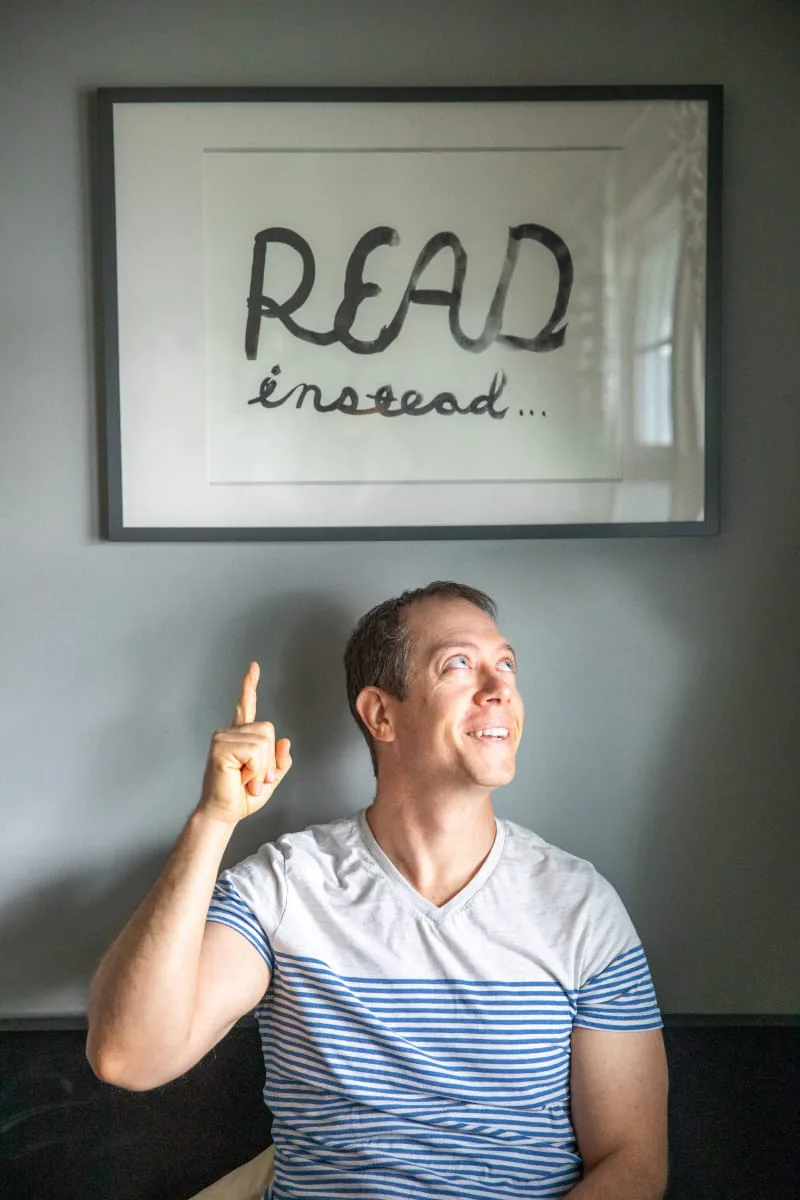
Seeing his story in hardcover as a kid inspired John deeply, and made him feel like his words mattered. It opened up a possibility he’d never considered before – that the stories he imagined could be considered worthy enough to appear in print.
That was exciting, because as a kid, John read constantly; once he read 15 books in a single day.
I would just spend 12 hours reading. I’d only get up to go to the bathroom and eat food, and I would plow through an incredible amount of books; I taught myself to speed read that way.
But John didn’t plan on being a writer then.
He went to college and pursued a communications degree with a vague idea of becoming a musician. But then, his sophomore year of college, he had to write a 75-page paper.
And he loved it.
It was as if seeing his laser story in hardcover was happening all over again.
But this time, what he saw in print was massive. He remembers the weight of 75 pages in his hand.
It inspired him to dream bigger.
His college self thought:
I’m going to write books, I’m going to write novels, I’m going to write short stories, I’m going to publish books and make a living off of that.
That was the original big dream, the kind that sets you off in new directions, not yet knowing what lies ahead, but you go anyway, with all the early vibrance a dream needs, providing a steady foundation to hold you when reality sinks in.
Little did I know how difficult it is to make a living off writing books.
Lighting candles and snapping fingers
After he finished his communications degree, he applied to NYU to get a Masters of Arts in creative writing.
He got in and moved to New York on September 2, 2001.
Nine days later, he watched The World Trade Centers fall – but not from his TV – from the window of his tiny 21st floor apartment.
Moving to New York City changed him. But even though it could be isolating and lonely, he learned a lot in his time there, especially from the feedback he got from the professors in his master’s program. He wrote a novel for his thesis, and while, according to him, the novel was terrible, the program got him used to the practice, feedback, and editing loop essential to mastering any craft.
He remembers the weight of 75 pages in his hand.
John graduated with an M.A. from NYU, moved back home to Santa Clarita, California, and, like many serious artists, applied for a job as a waiter.
But it was like his freshman year all over again. No one would hire him.
“You don’t have any waitering experience, how are you going to waiter?” John was told.
“I have a masters degree,” John replied. “I can memorize your menu, just let me have a job.”
The bulldog.
Eventually, someone hired him to wait tables. He also taught at the local community college, but, as he explains, “waitering paid way more money than teaching college.”
Serving food and teaching paid the bills while John wrote – at least two hours every day.
He even created his own writing community and called it The Jack London House: where his writer friends would come over once a month, turn off all the lights, light candles, and take turns reading out loud whatever they’d written that month.

John even had pins made for one of the literary communities he started.
After each person finished, everyone snapped their fingers.
John laughs now at the candles and the seriousness, but really The Jack London House was essential to his early creative life – a time when his art wasn’t making any money but, in this place, with this community, it had infinite value.
As a way to continue to cultivate a writing community, in 2006 John started a blog to write about literary news.
A few years later he went to USC to pursue an MFA in creative writing. His secret hope was that the MFA would help him finally get his first book written and published.
“Did it?” I ask.
“Well, yes,” John replies, “10 years later.”
His art wasn’t making any money but, in this place, with this community, it had infinite value.
Maybe rejection doesn’t mean you’re not a good writer
John graduated from USC with an MFA and a full collection of short stories. For the next few years he would submit those stories to literary journals.
Teach, write, blog, submit to literary journals, open rejection letters, repeat.
That’s when the rejections began.
And they kept piling up.
For years.
But the bulldog, undeterred, kept going, kept submitting, all the while gaining strength from the writing communities he’d cultivated with his blog and his artist friends.
In that time, he also got married and decided to go all in on teaching at the college, hoping one day he could get tenure and have some income stability.
For many years, John’s life looked like this: teach, write, blog, submit to literary journals, open rejection letters, repeat.
Until one day, something broke through the routine.

He got a letter from The Chicago Tribune; he’d won second place in their fiction contest, out of over 4,000 entries – they would also publish his story in the newspaper.
Then he got letters with even more good news. He won first prize in two fiction contests (Third Coast and Sehnandoah), and one of those prizes included four-figure prize money.
It was the first time he really started to believe that maybe his work was good.
It was also the first official confirmation of something he’d hoped all along – that maybe rejection didn’t mean he wasn’t a good writer. Maybe all rejection means is that it’s “incredibly competitive out there.”
John was never one to shy away from a competitive environment.
That particular win – and the feeling of his art generating money (more important to him than the money itself), was like one of those electric side-wheel power boosters on old Hot Wheels tracks – magically tripling the speed of the car, keeping it running around the maze for much longer than it would on analog, holding it to the tracks even when it’s upside-down.
Then John and his wife got news that would change everything.
He started questioning his worth
In 2012, John and his wife welcomed twin boys into the world.
When they compared childcare costs, John’s adjunct teaching salary, and her high school teaching salary plus benefits, they decided it made the most financial sense for John to stop teaching and be a stay-at-home dad.
“It was a rough transition,” John remembers. He missed the college life. “Sometimes I’d get them in a double stroller, and take them over to the nearby community college,” he tells me. He missed standing in front of a classroom, surrounded by undergrads and their hunger for learning. He even missed the smell of the library.
He also missed having a professional identity.
He started questioning his worth.
Okay, I’m Mr. Mom now; I’m a stay at home dude. Does this mean I’ve failed in my career? I had been struggling to publish a book and couldn’t, struggling to get a tenure track position at a university and couldn’t. I felt like a failure.
John struggled with those feelings for years, all the while giving everything he had to his boys, and continuing to write when he could, including his blog.
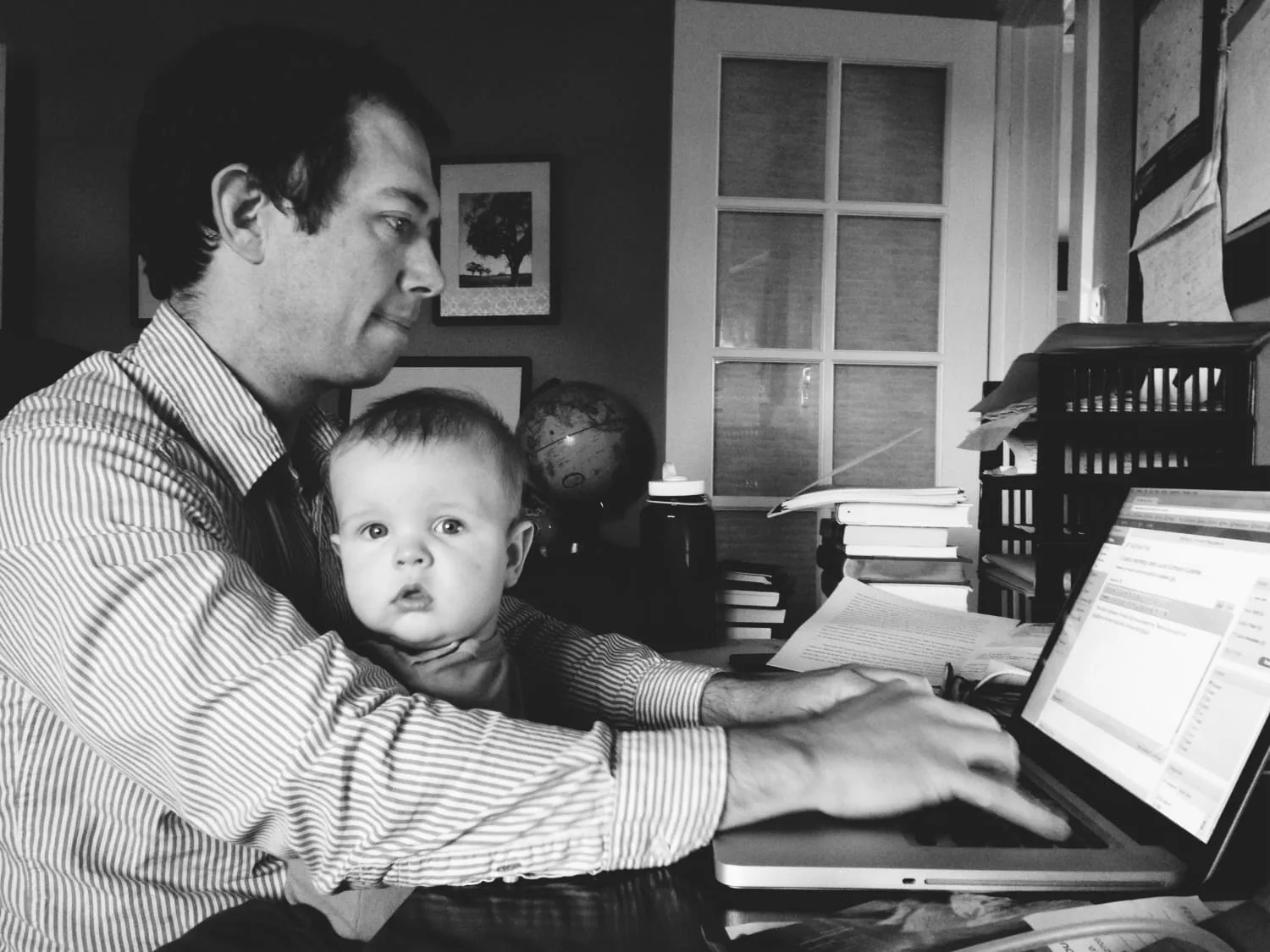
When the twins were three years old and going to Pre-K a few hours a day, John started to dream about going back to work in some way. He was still the twins’ full-time caregiver, so he knew he’d need something really flexible.
What about his blog? He’d tried to monetize it before but failed.
Why not try again?

I’m sure you can guess what The Bulldog did next.
He tried again.
First with ads, but those didn’t work: “I just couldn’t make any money off of them.”
Next, affiliate links: “I was really bad at those too.”
His wife, also a creator and photographer, introduced him to podcasts about earning money with your creative work, like Entrepreneur On Fire. He’ll never forget the episode when the host, John Lee Dumas, talked about offering services on your blog. John hadn’t tried that yet.
Instead of relying on ads or affiliate links, what if there was a service he could offer on his blog that people would find valuable?
He took stock of his experience.
Two graduate writing degrees.
He’d read a crazy amount of books thanks to speed reading.
He had years of experience giving professional feedback to writers about their work as a graduate student and then professor.
“I’m an editor,” he decided.
In August 2016, he added a new page to his blog advertising his editing services; at that time he’d been blogging for 10 years and had written 700 blog posts.
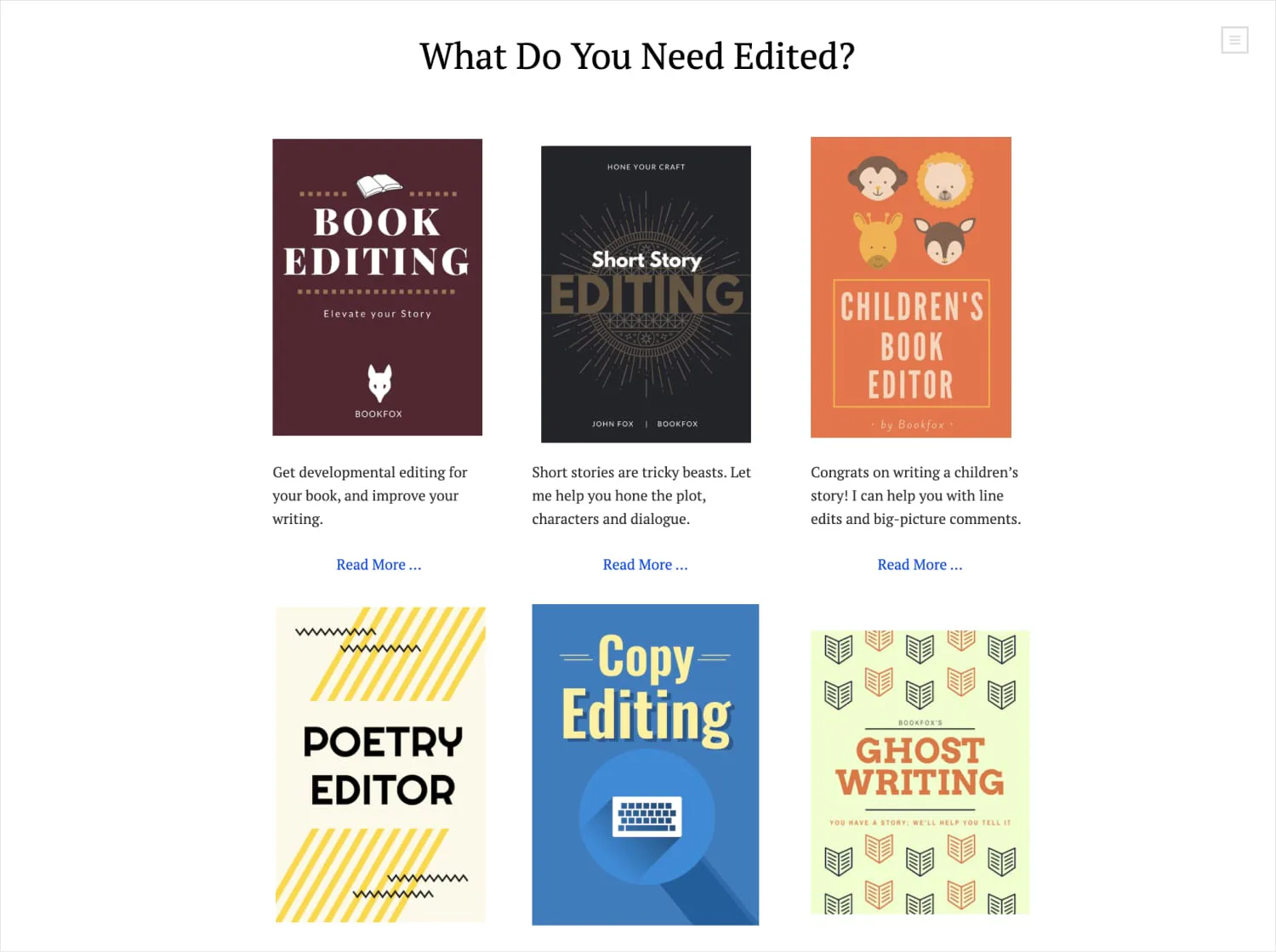
By the end of that year, John had earned $15,000 from his editing services.
“I felt giddy,” he tells me.
He couldn’t believe what was happening, especially because he was doing all this while still being his sons’ full-time caregiver. He was only able to work on his business about three hours a day, when his sons were at Pre-K.
Could he keep this up?

People weren’t coming back
“Ironically, when you have less time,” John says, “you actually are much more efficient with it. In those three hours I got so much editing done.”
And when he wasn’t editing, he was listening to podcasts, reading about online business, and applying everything he learned. He decided to focus most of his energy on SEO so he could get more traffic to his blog and editing services page.
For a while, he did lots of keyword research himself and, if he saw that, say, 10,000 people were searching for “short story ideas,” he’d write a new post about short story ideas. Once he saw that was working well, he hired 20 other writers to write posts for his blog based on the keyword topics he’d researched.

That’s when his unique site visitors went from 10,000 a month to 200,000 a month.
But there was still one big problem.
People weren’t coming back to the site.
They’d find it through Google, get the content they needed, but then never return.
The traffic wasn’t really going anywhere.
Maybe all rejection means is that it’s “incredibly competitive out there.”
That’s when John realized he needed a way to build a longer-term relationship with his website visitors, and a way to stay in touch even after they “left.”
He set up an email list, offering a free PDF on “How to Defeat Writer’s Block” to get his first subscribers.
Then, at our Craft + Commerce conference, he got the idea to write a year-long automatic email sequence so that he could stay in touch with his audience every week without having to remember to sit down and write each week (something he was struggling with).
John channeled all that conference excitement into 52 emails.
I ask him what changes he saw when he implemented that sequence and started going all in on email, and even I’m surprised by what he says:
My monthly income doubled. And then, when I made big changes to my email in 2018, it doubled again. It is the main driver. I don’t do Twitter or any other social media. Email is the only thing I do other than blogging and it works.
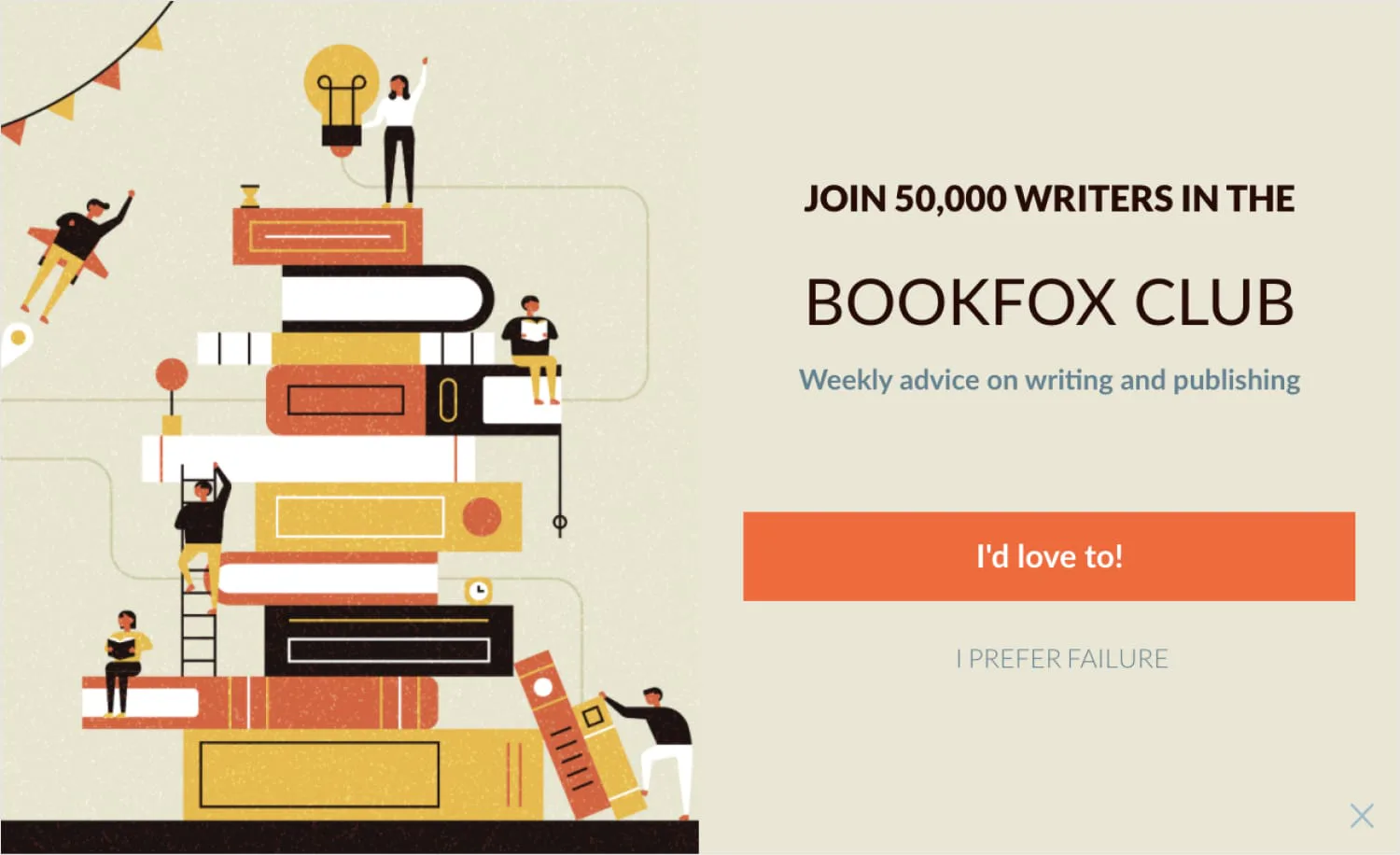
When I ask about the big changes he made in 2018, he tells me it was segmenting his list into interest-based groups using tags. He has a group of poetry writers, children’s book writers, and novelists, and started sending emails specifically tailored to them.
By the end of 2017, his first full year of editing, he’d made six figures and it’s gone up consistently every year since.
And while he wasn’t creating as much new work of his own during this period, he never stopped sending his work out. He still dreamed of publishing a book one day.
The many roles an artist can play
What surprised John the most, though, was how much creative fulfillment he found in being an editor.
People are so grateful when I send them 10 single spaced pages talking about their novel. I will have spent more time being thoughtful about their book than anyone else in the world ever. It’s a very intimate relationship; they’re entrusting you with their baby, and I love being able to dig in deeply.
Just like the optimistic writer fresh out of grad school starting The Jack London House and writing a blog about the literary community, John still cares deeply about the entire literary ecosystem, and recognizes that there are many parts an artist can play.
Maybe I don’t have to be the New York Times bestseller. But I’m playing a really crucial role providing all of these resources for writers online. Ultimately, I feel like I’m fulfilling a role in the writing world.
“Maybe I don’t have to be the New York Times bestseller.”
This unique writing life and business John has created is not a consolation prize, either. Far from it.
There are so many different options within the writing field, but it’s always the flashiest that get all the attention. Like ‘New York Times bestselling author’ – it’s that or bust. But there are so many different roles to play that you can have a lot of fun playing, and probably even earn more money than a New York Times bestselling author.
Maybe I’m not like a super famous writer, but I’ve created a successful business and that’s something to be proud of.
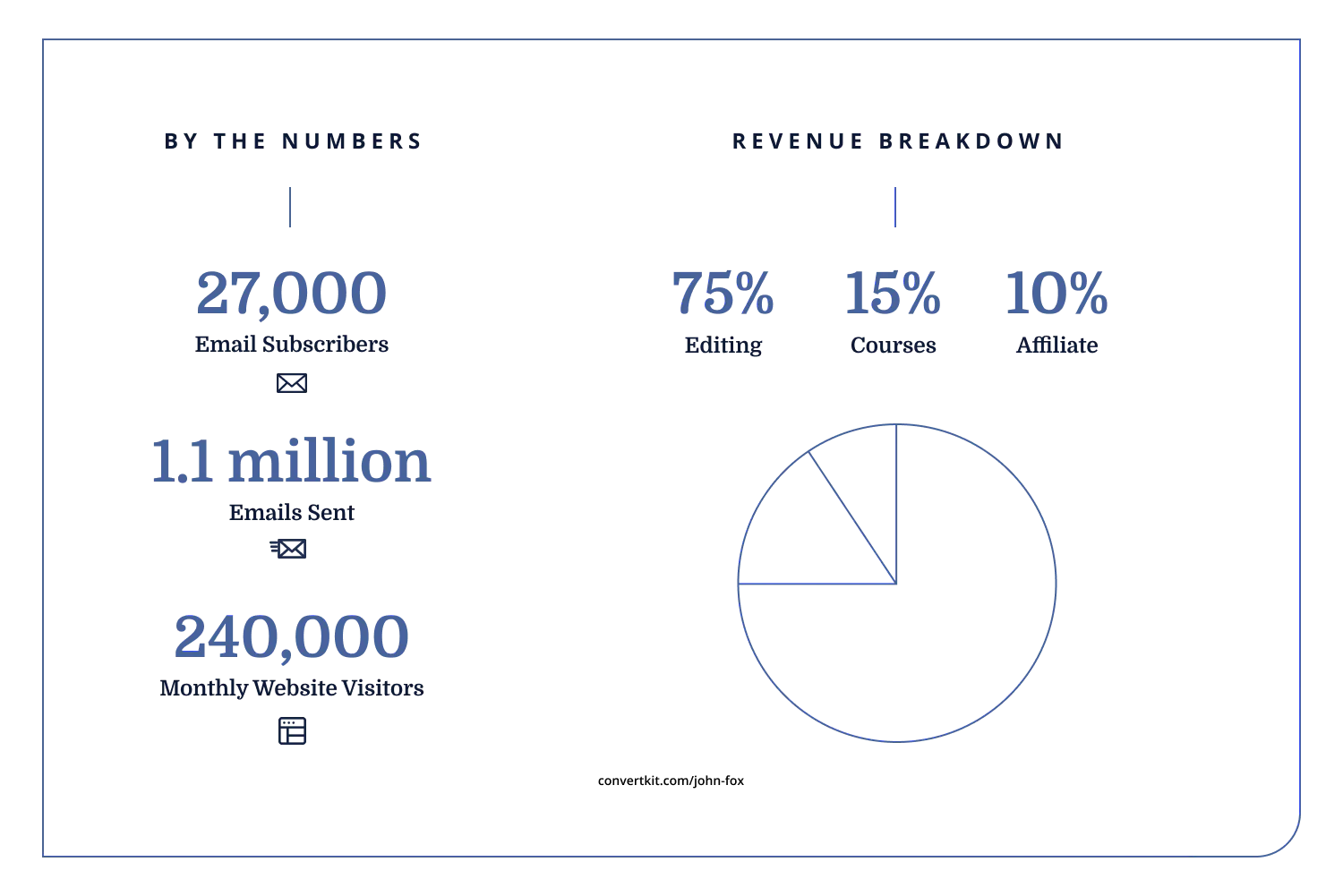
I ask John what advice he has for creators who are trying to find a role in their artistic ecosystem.
All you need is an audience. As long as you get a bank of people who are interested in one singular thing, you can figure out how you can provide what they need.
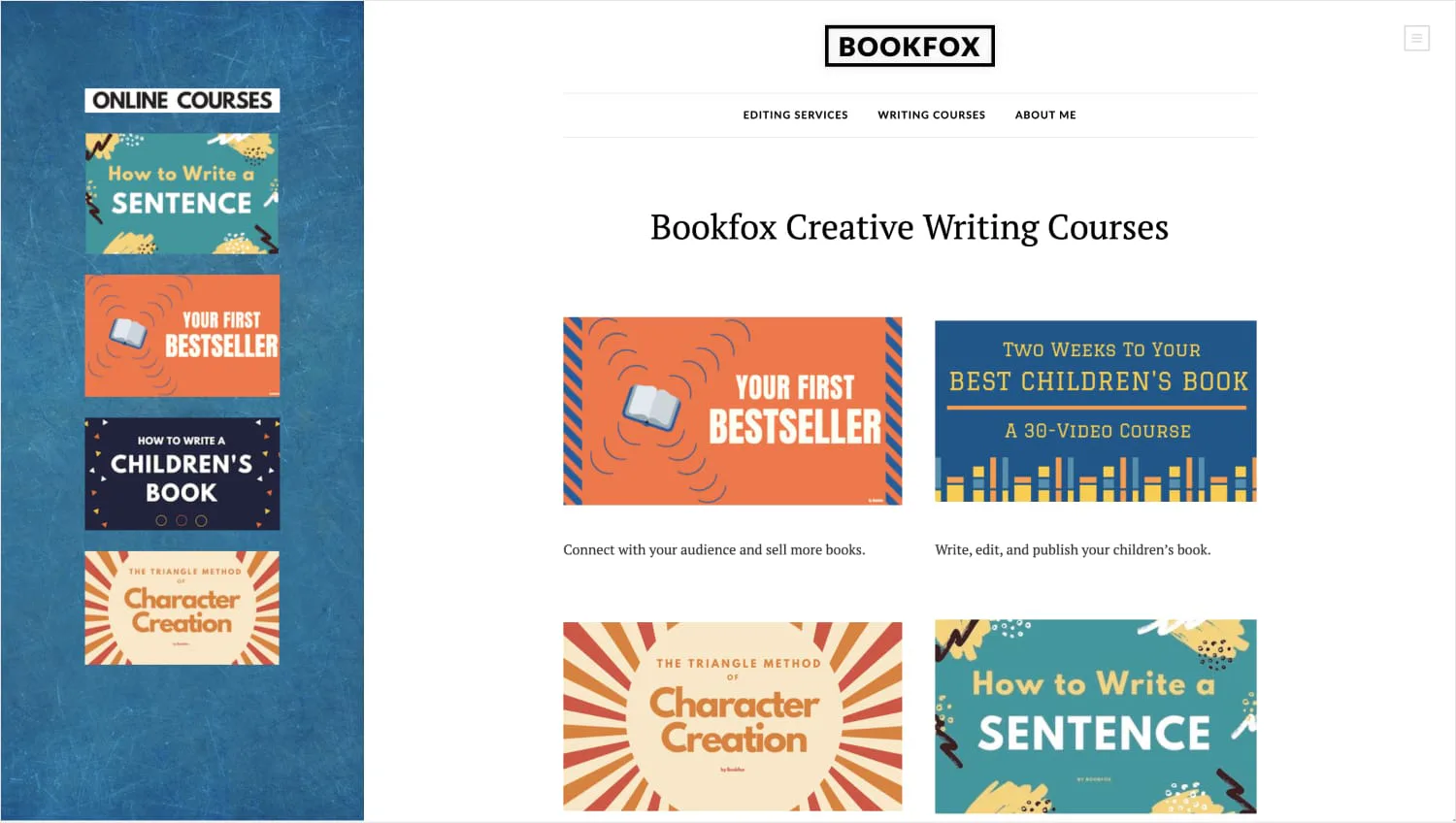
John created courses to help his audience.
The ecosystem is so much bigger than we’re often told, John says.

John said when he saw the first copies he wanted to do snow angels in them.
He constantly reminds his writing audience that there are many ways to be a valuable member of a writing community – they can be like him and start their own business, or be an editor, or a literary agent, or work for a publisher, or be a freelance writer.
The bulldog believes there are many doors.
The bulldog will knock on all of them.
Even if it takes years.
Even if you have to do it while running from door to door in weighted shoes.
In January 2017, one door John never gave up on finally opened.
He received a letter from Press 53, a publisher.
It was not a rejection.
They wanted to publish his book, a collection of short stories.
After he read the letter, he grabbed the ceramic bulldog and started “Eye of the Tiger.”
Only this time, his wife and two sons joined in too, a veritable indoor parade, all of them singing, laughing, and running all around.

